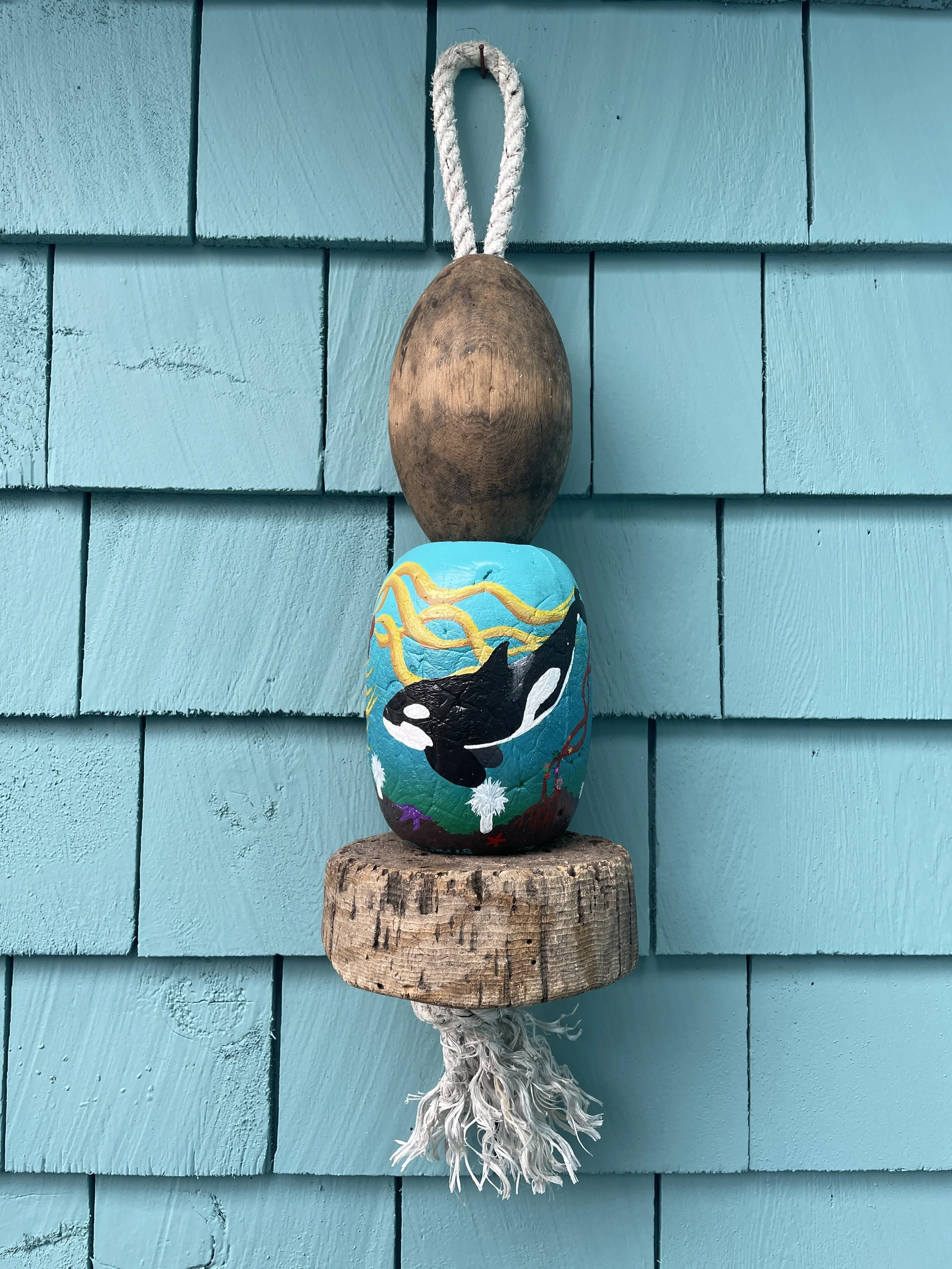
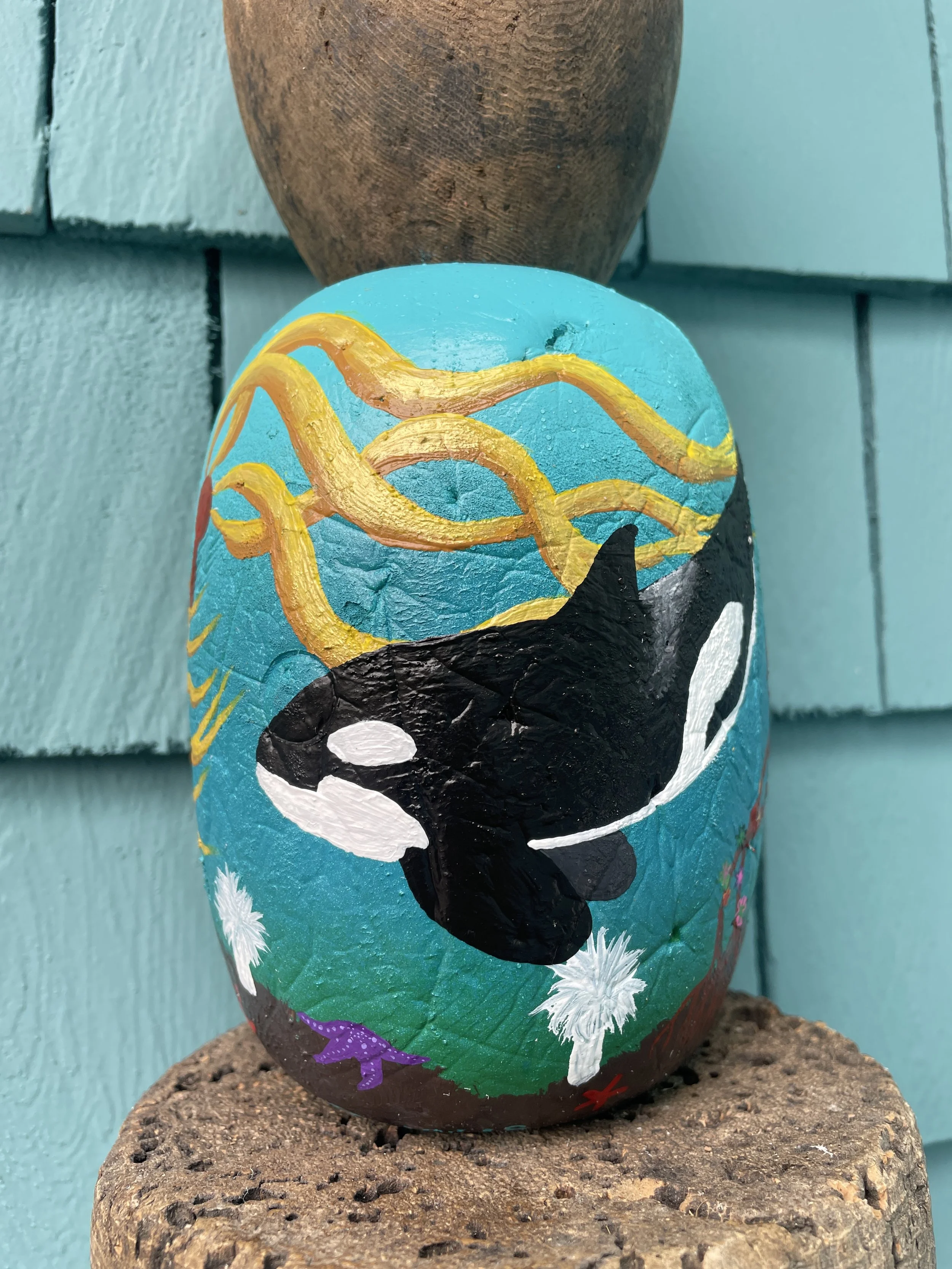
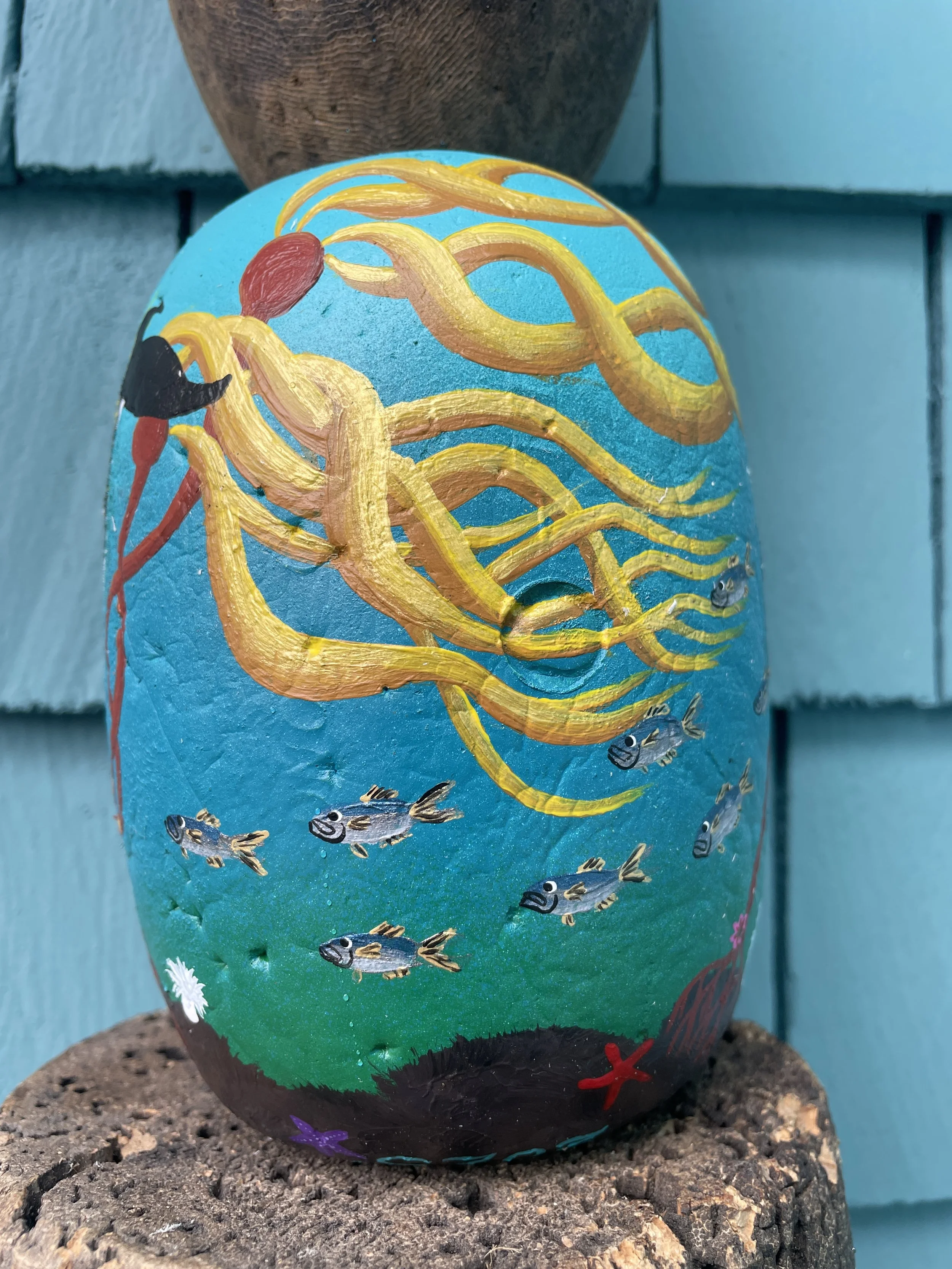
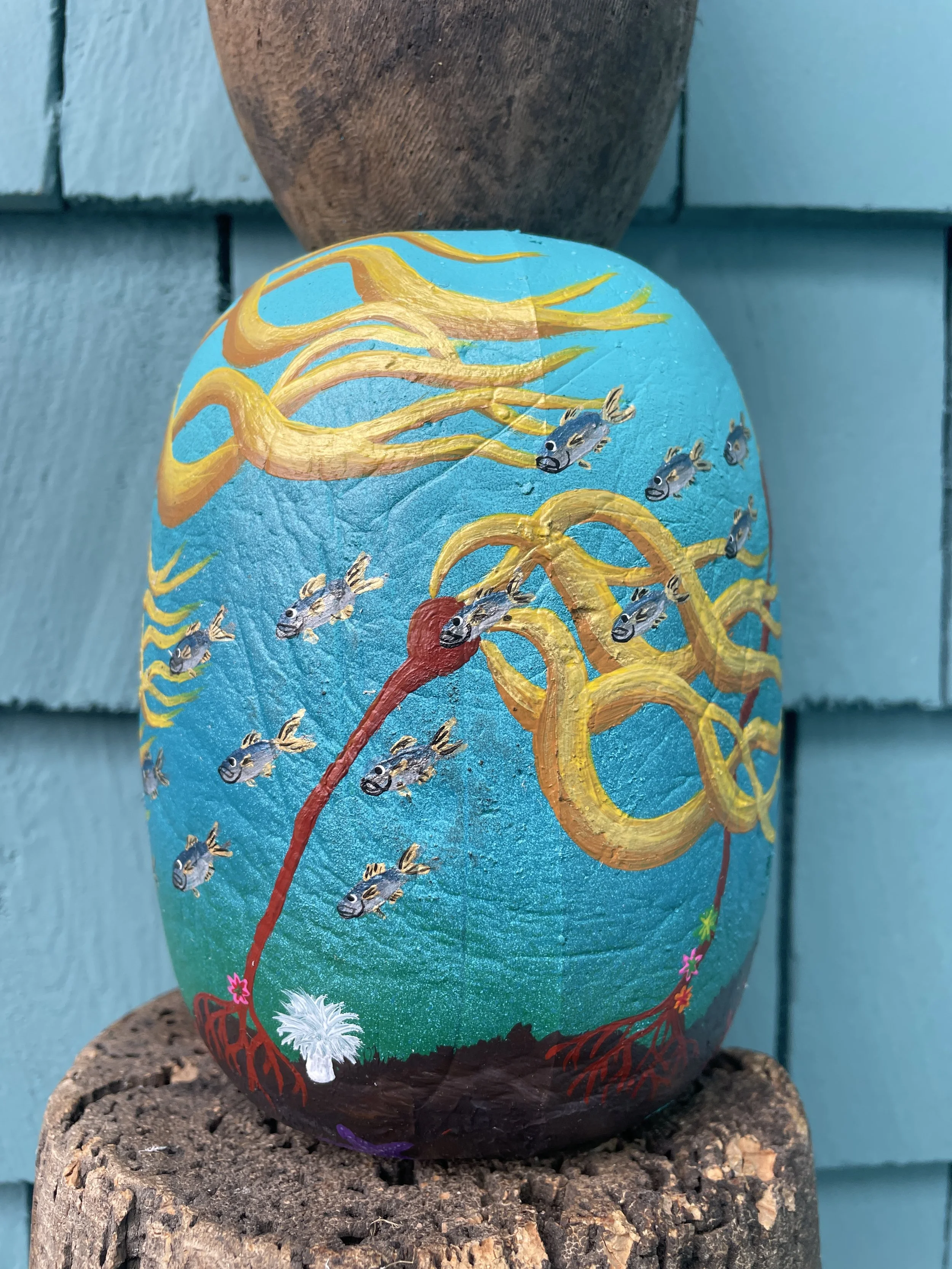
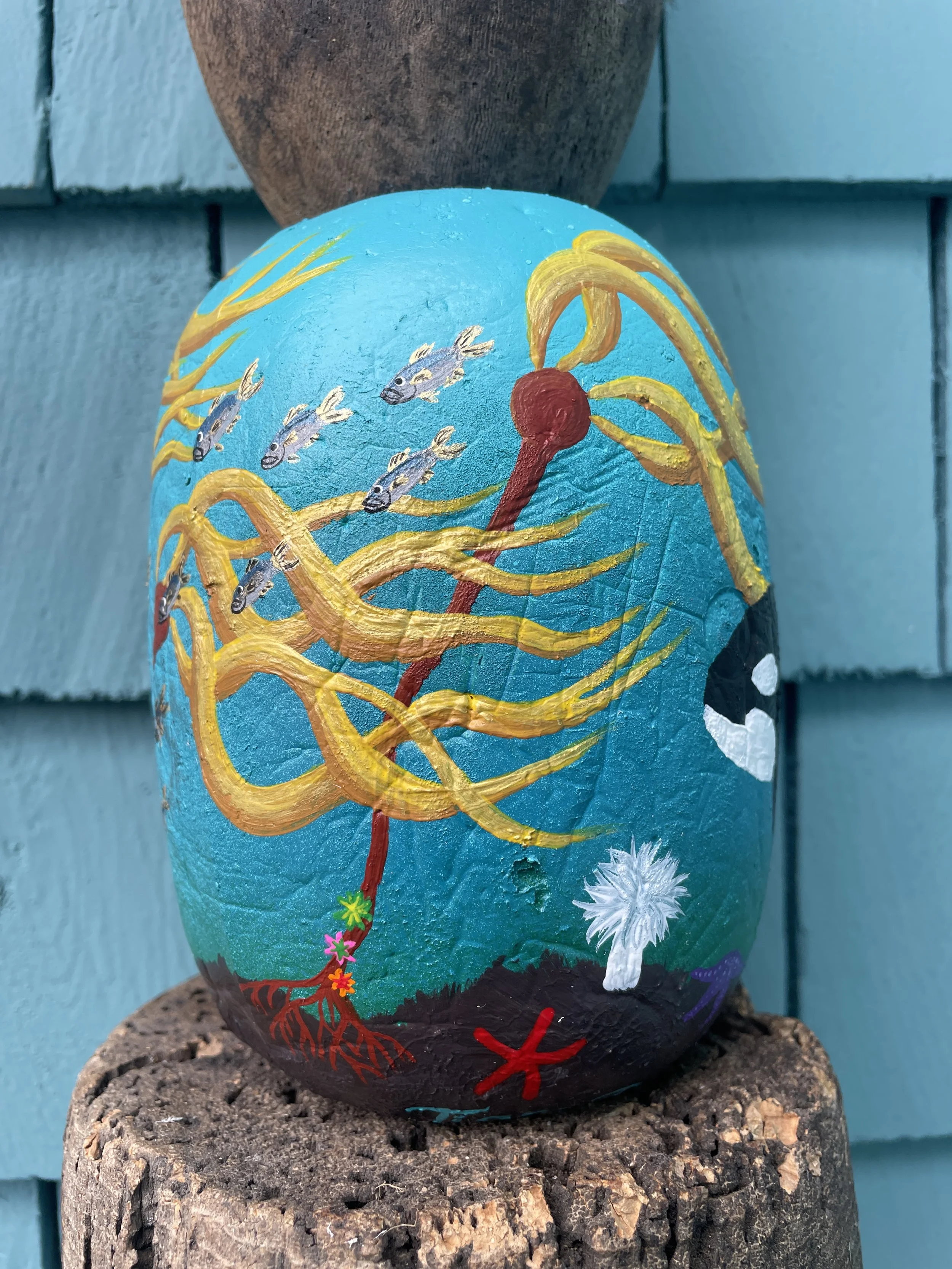
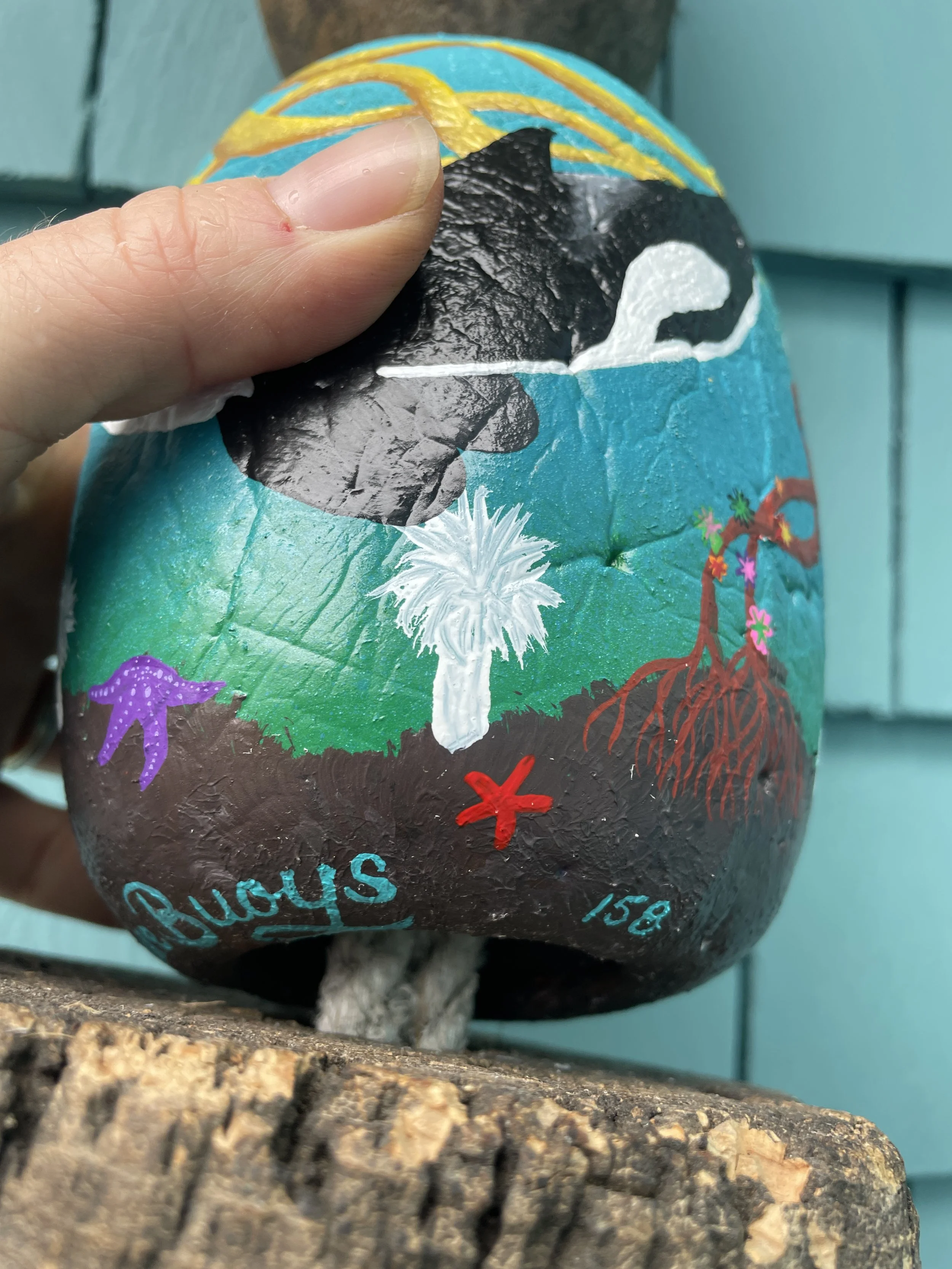
Whidbey
The plastic buoy of this piece I found washed up on Nigie Island near the northern tip of Vancouver Island. The wooden float is from an old salmon gillnet, it was carved from a cedar block and then painted with tar to make it last longer. Before plastic was common this is what fishermen used here on the coast. The wooden floats are heavier, more expensive and can get damaged easier than the modern, cheaper plastic buoys but they eventually degrade unlike plastic ones used today and are rare to come by. The bottom float is even older and much rarer, it is made from the bark of a cork tree, these were commonly used on the coast but were also replaced by plastic as it is more durable.
On this piece I have painted ‘Whidbey II’ (T065) an adult female orca born around 1968. Whidbey is part of the Bigg’s orcas (aka transient killer whales) she eats seals, sealions and other marine mammals. She travels with her son Chainsaw and sometimes her daughter’s clan the T065Bs. They spend much of their time in the waters off Southeast Alaska.
I have painted Whidbey in a bull kelp forest with brooding and proliferating anemones growing on the kelp stalks. Plumose anemones grow along the bottom with ochre and vermillion sea stars. Pacific herring swim through the kelp forest sparkling silver and gold. Herring return each spring to the coastal waters all along the BC coast to spawn. This is an incredible site, their milt turns the North Pacific waters Caribbean blue and their eggs are laid thick on kelp, sea grass, rocks and sometimes even crabs that stand too still for too long. Animals all over the coast feast themselves on this golden buffet and the proliferation of life is and incredible sight. I have also painted plumose anemones, proliferating/brooding anemones, ochre sea stars and vermillion sea stars.
We need to learn more about orcas so that we can learn to be better neighbours to them, that is why10% of the proceeds from the sale of this buoy will be donated to Orca Lab. The work of Orca Lab is based on the philosophy that it is possible to study the wild without interfering with lives or habitat and they have been working on this coast since 1970. Please visit Orcalab.org to learn more.